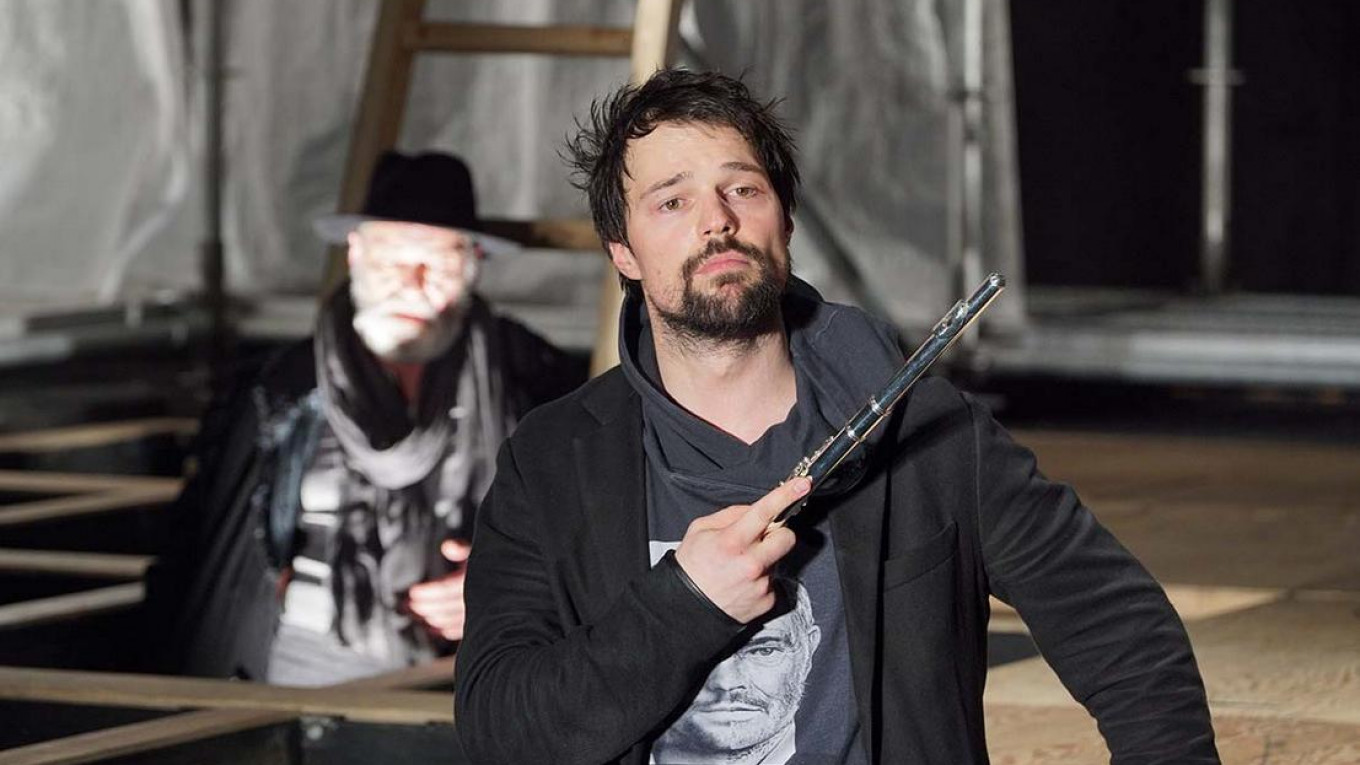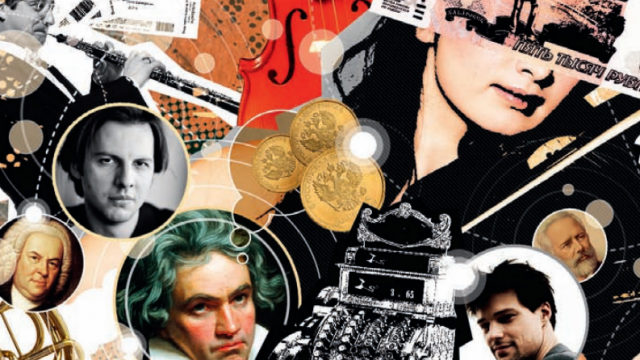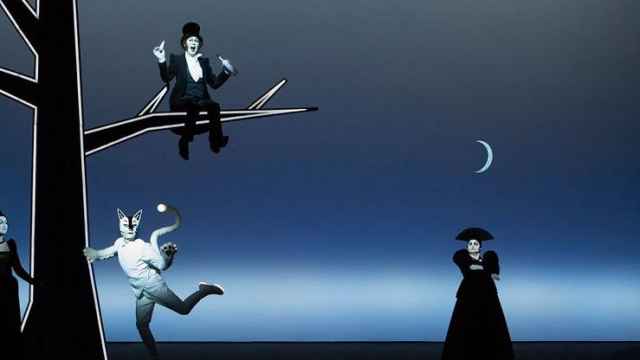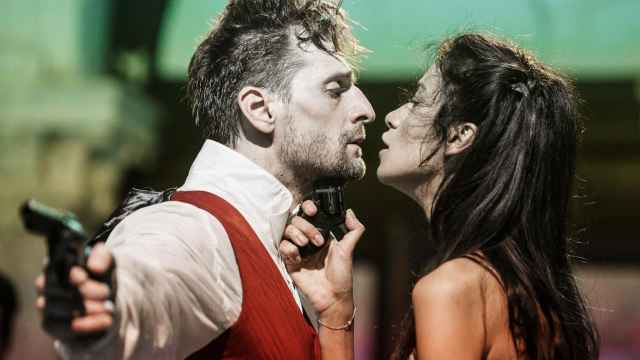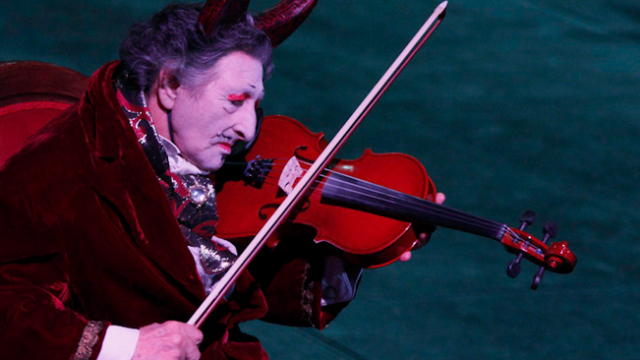Golden Mask is Moscow’s largest festival devoted to theater, which plays an extremely important role in the cultural life of the city. While Golden Mask has been around since 1993, it really came into its own and rose to its current prominence under Eduard Boyakov, who is now the director of the cutting-edge Praktika theater.
Lately, the Ministry of Culture has even got involved in nominating the jury members, which led to some protests in 2015. For this reason, two of the directors considered among the most prominent on the Moscow theater scene — Kirill Serebrennikov and Konstantin Bogomolov — refused to participate in the 23rd edition of Golden Mask.
Nevertheless, the festival is still a rare opportunity
to see the most interesting productions
from all over Russia. The festival lasts almost
three months, but we have picked five must-see
performances to look out for. Get your tickets
well ahead.
The Voronezh Chamber Theater (Kamerny Teatr), one of Russia’s better-known regional theaters, is often among the Golden Mask nominees. Last year’s production of Anton Chekhov’s beloved play “Uncle Vanya” has been nominated in seven different categories. Director Mikhail Bychkov’s version is a classical interpretation of Chekhov’s work and faithful to the original text. Nonetheless, there are a few quirks — many of the scenes take place on multi-level bunk beds.
March 30, 7 p.m.
“Three Sisters” by the Krasny Fakel (Red Torch) theater from Novosibirsk is a recent production by Timofei Kulyabin, the man behind opera “Tannhäuser,” banned for allegedly “offending religious feelings.” In this version of Chekhov’s play the actors communicate using sign language — viewers can read the dialogues as subtitles. This production has already been presented at Vienna’s Wiener Festwochen.
April 16-18, 7 p.m.
The St. Petersburg Maly Drama Theater’s
staging of “Hamlet” is a fresh look at
the classic. Apart from Shakespeare, director
Lev Dodin used texts by two of his predecessors
— Danish historian Saxo Grammaticus and
English chronicler Raphael Holinshed. Danila
Kozlovsky, probably Russia’s top film actor right
now, turns out to be a villain rather than a hero
in a production that becomes rather violent.
“The Storm” by the St. Petersburg Tovstonogov
Bolshoi Drama Theater is a collaboration
between director Andrei Moguchy,
Alexander Manotskov, one of the country’s
leading new academic composers, and Vera
Matrynov, former artistic director at Gogol
Center, now art director of the New Space at the
Theater of Nations. Manotskov wrote the music
to Ostrovsky’s play, while Martynov thought up
a unique stage design, including curtains featuring
Palekh miniature paintings. Moguchy’s
production of “The Storm” tries to recreate
theater as it was “before Stanislavsky.”
The aptly named “Post” theater from St. Petersburg will present its very post-modernist production “Field,” by arguably the most avant-garde director in Russian theater, Dmitry Volkostrelov. Based on a play by Pavel Pryazhko, who often collaborates with Volkostrelov, “Field” is both a series of scenes from the lives of combine harvester drivers in Belarus and a description of the world as seen by a theoretical physicist. If that’s not “post-theater” enough for you, the order in which scenes follow each other is determined by using a random number generator
A Message from The Moscow Times:
Dear readers,
We are facing unprecedented challenges. Russia's Prosecutor General's Office has designated The Moscow Times as an "undesirable" organization, criminalizing our work and putting our staff at risk of prosecution. This follows our earlier unjust labeling as a "foreign agent."
These actions are direct attempts to silence independent journalism in Russia. The authorities claim our work "discredits the decisions of the Russian leadership." We see things differently: we strive to provide accurate, unbiased reporting on Russia.
We, the journalists of The Moscow Times, refuse to be silenced. But to continue our work, we need your help.
Your support, no matter how small, makes a world of difference. If you can, please support us monthly starting from just $2. It's quick to set up, and every contribution makes a significant impact.
By supporting The Moscow Times, you're defending open, independent journalism in the face of repression. Thank you for standing with us.
Remind me later.


